×
Filter Results
Filter Results
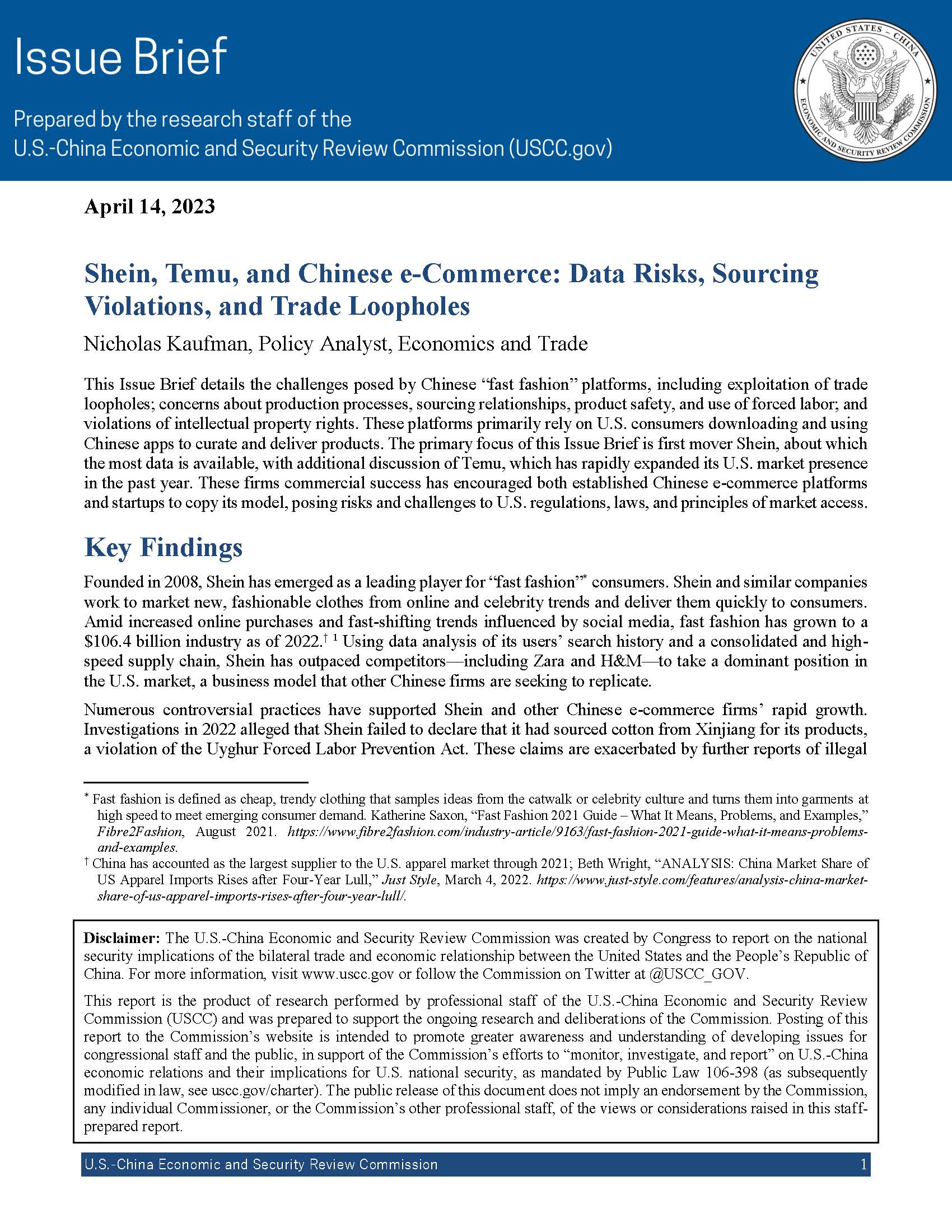
Issue Brief
This Issue Brief details the challenges posed by Chinese “fast fashion” platforms, including exploitation of trade loopholes; concerns about production processes, sourcing relationships, product safety, and use of forced labor; and violations of intellectual property rights. These platforms primarily rely on U.S. consumers downloading and using Chinese apps to curate and deliver products.
The primary focus of this Issue Brief is first mover Shein, about which the most data is available, with additional discussion of Temu, which has rapidly expanded its U.S. market presence in the past year. These firms commercial success has encouraged both established Chinese e-commerce platforms and startups to copy its model, posing risks and challenges to U.S. regulations, laws, and principles of market access.
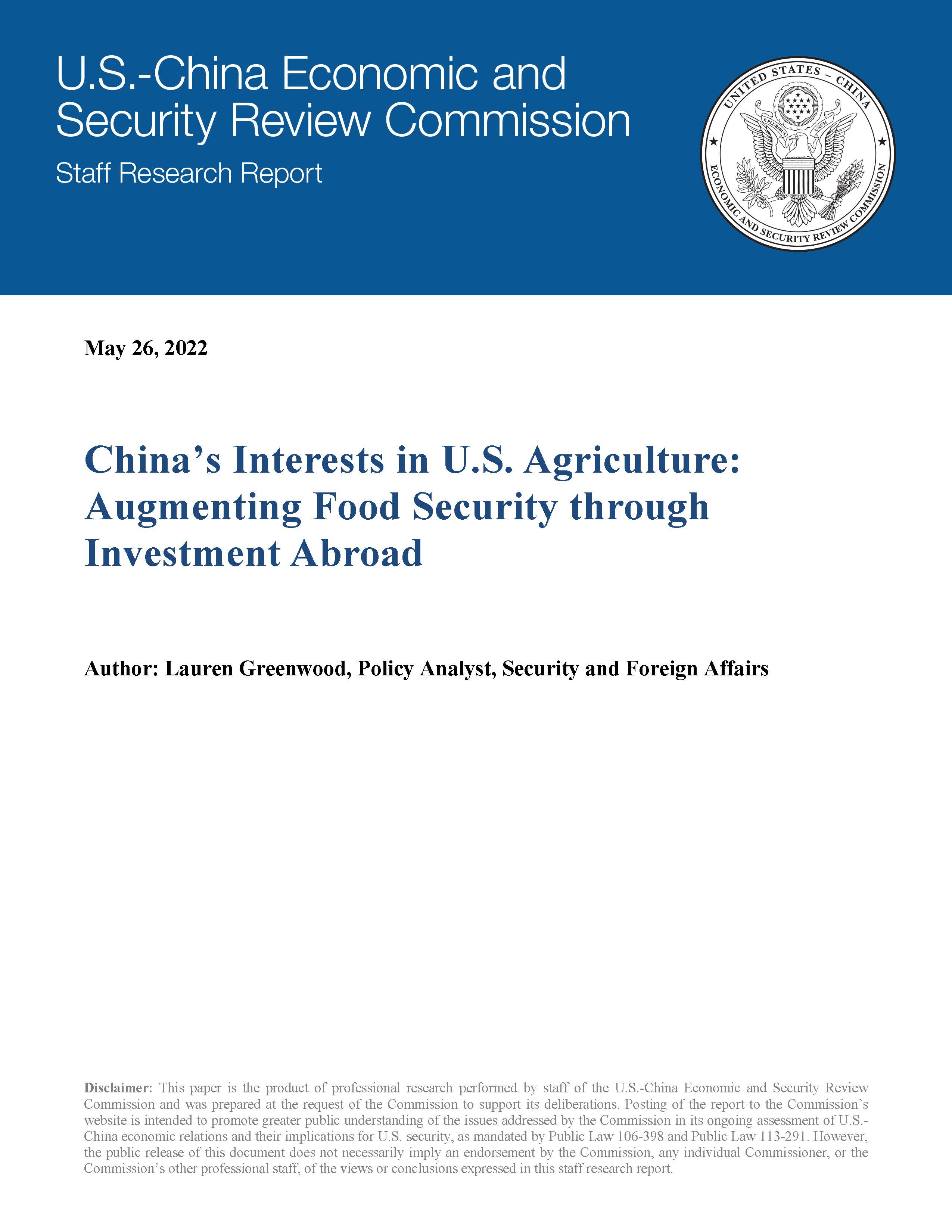
Staff Paper
The report reviews China’s food security challenges and how these vulnerabilities drive interests in U.S.-China agricultural relations.

Issue Brief
On January 15, 2020, President Donald Trump and China’s Vice Premier Liu He signed a “Phase One” trade agreement. It forms part of an effort to resolve trade tensions that have been ongoing since March 2018, when the Office of the U.S.
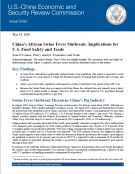
Issue Brief
In 2018, China reported several cases of African swine fever, or ASF, a highly contagious disease that is deadly to pigs. The disease has now spread throughout China, where it has already reduced the country’s hog population by more than 50 million, and throughout other countries in Asia. This report provides an overview of the ASF outbreak in China, the implications for U.S. exports of pork and animal feed products, and the risks posed to U.S. food safety and food security.
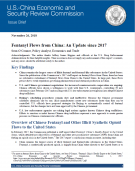
Issue Brief
This issue brief provides an update to the Commission's February 2017 report on fentanyl flows from China, examining the progress of negotiations between U.S. and Chinese law enforcement authorities. Although the Chinese government has taken steps to reduce the manufacture and export of fentanyl-like substances, China remains the largest source of illicit fentanyl and fentanyl-like substances in the United States. To combat these flows, U.S. authorities have begun taking legal actions against known Chinese drug traffickers, including announcing the first ever indictments and sanctions against Chinese fentanyl traffickers.
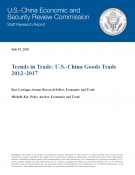
Staff Paper
Since joining the World Trade Organization in 2001, China has leveraged relatively cheap labor, large economies of scale, industrial policies, and the manufacturing capabilities of neighboring countries to become an export powerhouse in an increasing range of industries, while often limiting market access for foreign products. China’s scale as a trading power coupled with its protectionist policies have contributed to rising tensions in bilateral trade relations. This report describes and analyzes patterns in the U.S.-China trade relationship in 2012–2017 and is an update to a staff research report published by the Commission in November 2012 which covered trends in trade in 2000–2011.
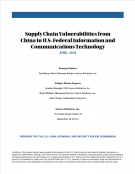
Contracted Research
The U.S.-China Economic and Security Review Commission released a report entitled Supply Chain Vulnerabilities from China in U.S. Federal Information and Communications Technology, prepared for the Commission by Interos Solutions, Inc. The report examines vulnerabilities in the U.S. government information and communications technology (ICT) supply chains posed by China, and makes recommendations for supply chain risk management.
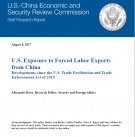
Staff Paper
China maintains a network of prison labor facilities that use forced labor to produce goods intended for export—a violation of U.S.-China trade agreements and U.S. law. The United States continues to face difficulty in preventing these products from entering its borders, but the Trade Facilitation and Trade Enforcement Act (TFTEA) of 2015 has strengthened its ability to do so by closing a major legal loophole. Chinese authorities remain uncooperative with their U.S. counterparts; they routinely deny that forced labor occurs, and they have not allowed U.S. officials to visit suspected sites in years. Due to insufficient oversight, the supply chains of many U.S. companies remain vulnerable to forced labor-derived products.
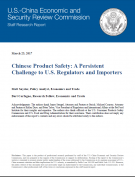
Staff Paper
Chinese imports account for a disproportionately high number of product safety recalls in the United States, and China’s position as the largest supplier of U.S. consumer imports challenges U.S. safety regulatory agencies who must apply finite resources to screen out risky products. This staff paper explores unique product safety problems posed by Chinese imports, including legal difficulties associated with holding China-based firms accountable for unsafe products, gaps in China’s safety regulatory structure, and difficulty in identifying Chinese products that have been shipped through third party countries. The report also summarizes U.S. import safety procedures followed by the U.S. Consumer Product Safety Commission and U.S. Food and Drug Administration and the resources available to these agencies to detect unsafe imports.
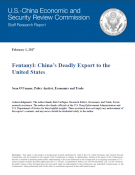
Staff Paper
Mass quantities of fentanyl, a low-cost and highly potent synthetic drug, are being produced in China and brought illegally to the United States, contributing to a growing U.S. opioid crisis. The rise of fentanyl in the United States can be traced back to China’s large chemical and pharmaceutical industries, which manufacture vast quantities of the drug and its analogues to export to the western hemisphere with little regulatory oversight. This report examines how China’s illicit chemical production and inefficient U.S. and international counternarcotic efforts have contributed to dramatic increases in fentanyl-related deaths in the United States.
